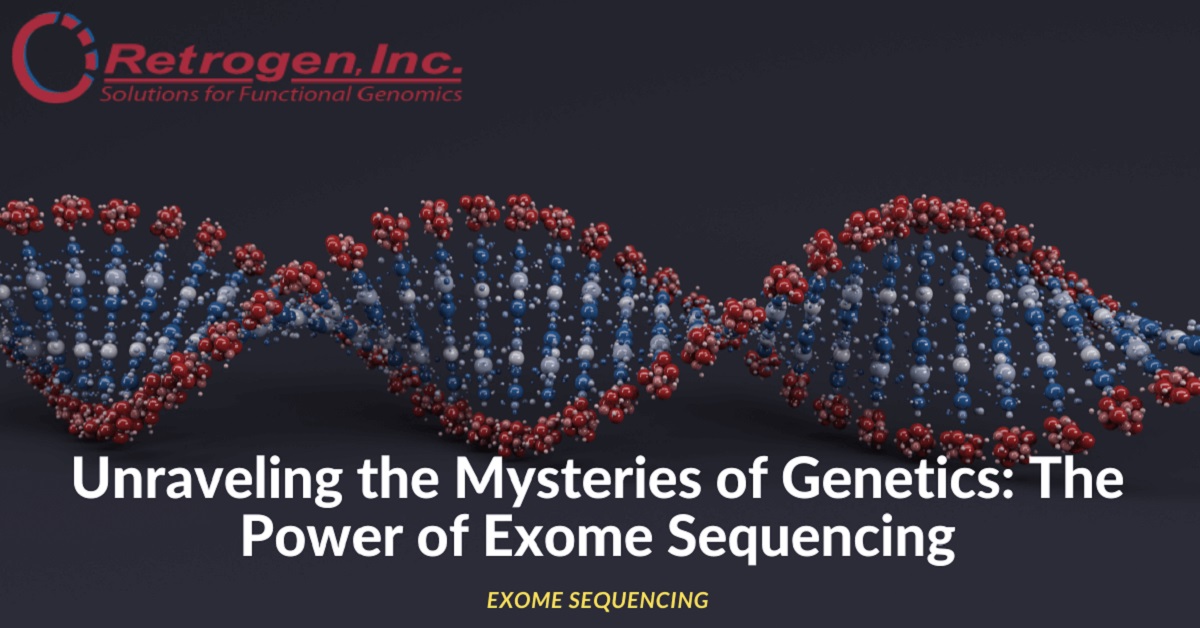
In the ever-evolving field of genetic research, exome sequencing has emerged as a pivotal technology that is transforming our understanding of the human genome. This powerful tool allows scientists and clinicians to focus on the most informative regions of the genome, providing insights into a wide range of genetic disorders and paving the way for personalized medicine. In this article, we will delve into what exome sequencing is, its advantages, applications, and how it is revolutionizing the landscape of genetic diagnostics and research.
What is Exome Sequencing?
Exome sequencing, also known as whole exome sequencing (WES), is a genomic technique for sequencing all of the protein-coding regions of genes in a genome, collectively known as the exome. These regions, though comprising only about 1% of the entire genome, harbor approximately 85% of known disease-related variants, making exome sequencing a cost-effective alternative to whole-genome sequencing.
The Process of Exome Sequencing:
The process of exome sequencing involves several steps. Initially, DNA is extracted from a patient’s blood or tissue sample. The DNA is then fragmented, and specific probes are used to capture the exonic regions. Once isolated, these regions are sequenced using high-throughput sequencing technologies. The resulting data is analyzed using bioinformatics tools to identify genetic variants that may be associated with disease.
Advantages of Exome Sequencing:
- Efficiency: By targeting only the coding regions of the genome, exome sequencing is more efficient and less expensive than whole-genome sequencing.
- Focus on Variants with Higher Impact: Since the exome contains regions that are translated into proteins, variants in these areas are more likely to have significant biological effects.
- Manageable Data: Exome sequencing generates a smaller, more manageable dataset, which simplifies data storage and analysis.
- Diagnostic Yield: Exome sequencing has a higher diagnostic yield for certain genetic conditions compared to other genetic tests.
Applications of Exome Sequencing:
- Disease Gene Discovery: Exome sequencing is instrumental in identifying novel genes associated with rare and complex diseases.
- Personalized Medicine: It facilitates the development of personalized treatment plans based on an individual’s genetic makeup.
- Cancer Research: Exome sequencing helps in understanding the genetic mutations that drive cancer progression and in identifying potential therapeutic targets.
- Prenatal Diagnosis: It can be used for prenatal testing to detect genetic disorders in fetuses.
- Pharmacogenomics: The technique aids in predicting how patients will respond to medications based on their genetic variants.
The Impact of Exome Sequencing on Genetic Research:
Exome sequencing has had a profound impact on genetic research by accelerating the pace at which new disease-associated genes are discovered. It has also improved the diagnostic process for many genetic disorders, leading to earlier interventions and better patient outcomes. Furthermore, exome sequencing is integral to the field of pharmacogenomics, where it contributes to safer and more effective drug prescribing practices.
Challenges and Considerations:
Despite its advantages, exome sequencing presents certain challenges. It may miss non-coding or regulatory regions that could be implicated in disease. Additionally, interpreting the clinical significance of identified variants can be complex. Ethical considerations also arise regarding incidental findings and privacy concerns.
In Conclusion, Exome sequencing stands at the forefront of genetic research, offering a window into the intricate workings of the human genome. As this technology continues to advance, it holds the promise of unlocking new frontiers in our quest to understand and treat genetic disorders. By harnessing the potential of exome sequencing, researchers and clinicians are making significant strides toward personalized healthcare, ultimately improving patient care and outcomes.
For those interested in exploring the potential of exome sequencing further or seeking services related to this cutting-edge technology, it is essential to partner with reputable laboratories and institutions that specialize in genomic analysis and interpretation.
In summary, exome sequencing is an invaluable tool in modern genetics that offers a focused, efficient approach to understanding human disease at the molecular level. Its continued development and integration into clinical practice will undoubtedly shape the future of medical science and healthcare delivery.





